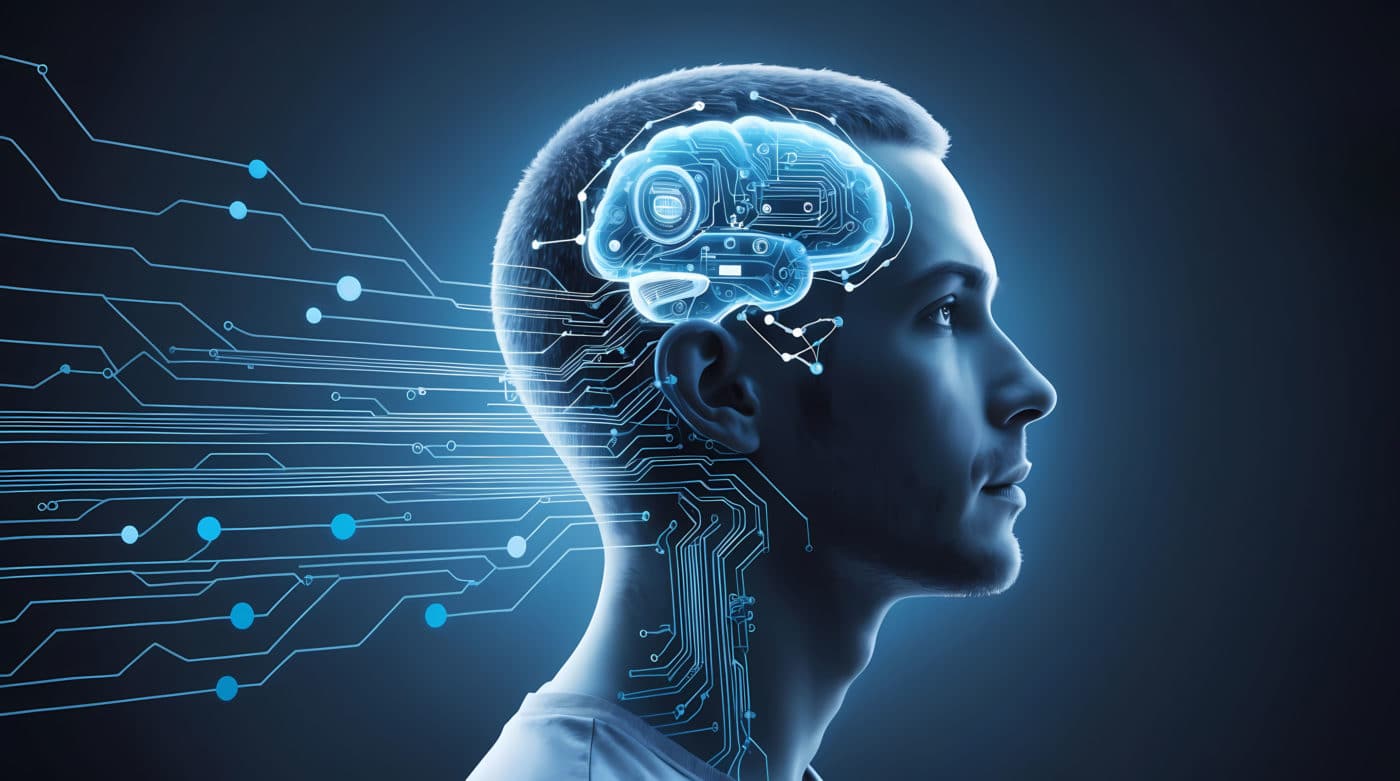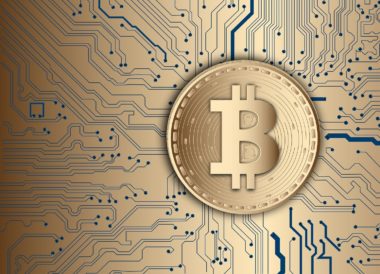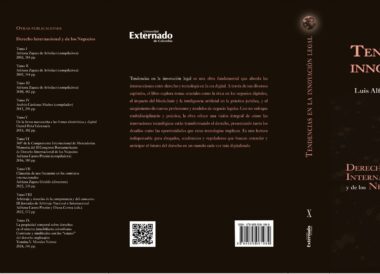22 de agosto de 2024
Civil liability and Neurosciences
The brain has become a privileged object of scientific research, not only from a theoretical point of view but also with experimentation and analysis of science, neuroscience. Investments in scientific research find their new focus in the brain, both in the private sector as public.
Law has studied human behavior and its consequences. Laws are, among others, a mechanism to shape human behavior and achieve social and collective benefits. Modernly, legal and economic regulation has as tools various incentives so that certain social behaviors are prioritized and others, harmful ones, are eliminated.
The theory and practice of civil liability is interested in the fields of scientific development and technological developments since they can be a source of social and individual damages and losses.
Civil liability in the context of neurosciences encompasses various legal issues arising from the application and implications of neurological research and technology. This area intersects with fields such as medical malpractice, research ethics, and personal injury law.
Neuroscientists and neurologists are responsible for accurate diagnosis and effective treatment of neurological conditions. Misdiagnoses or treatment errors can lead to civil liability if they result in harm to patients. Patients must be fully informed about the risks and benefits of neurological procedures or treatments. Failure to obtain informed consent can lead to claims of negligence. Researchers must obtain informed consent from participants in neuroscience studies. Issues arise if consent is not properly obtained or if participants are not fully aware of potential risks. Fabrication, falsification, or plagiarism in neuroscience research can have serious consequences. Researchers and institutions may face civil liability if research misconduct leads to harm or if findings are misused.
Neuroscience and privacy law intersect in complex and often contentious ways, especially as advances in neuroscience bring new capabilities for understanding and potentially influencing the human brain. Neuroscience research often involves collecting sensitive data about brain activity, thoughts, and mental states. Ensuring that this data is protected from unauthorized access or misuse is crucial. Participants must give informed consent, but the nuances of what individuals are consenting to, especially with emerging neurotechnologies, can be challenging to fully understand and articulate.
BCIs (brain computer interfaces) can read and potentially alter brain activity. Securing the data these devices collect and ensuring it is used only for intended purposes is a significant privacy concern. There are concerns about how much control individuals have over their neural enforcement. Neuroscience can be used to understand and influence consumer behavior. This raises ethical questions about the manipulation of individuals’ thoughts and preferences without their explicit knowledge. Ensuring that individuals are aware of when their neurological data is being used for marketing or other purposes is an ongoing challenge.
The law often lags behind technological advancements. Developing regulations that adequately address the privacy implications of new neuroscience technologies is an ongoing challenge. The ethical implications of neuroscience, such as potential breaches of mental privacy or the misuse of neurodata, need careful consideration and ongoing dialogue between scientists, policymakers, and the public.
The concept of cognitive liberty, or the right to mental privacy and freedom from unwanted cognitive interventions, is emerging as a critical area of concern.
Legal Protections: Ensuring that there are robust legal protections in place to guard against unauthorized mental probing or manipulation is crucial.
Cognitive liberty is a concept that has gained traction in discussions about human rights, particularly as advancements in neuroscience and related technologies raise new ethical and legal issues. It refers to the right of individuals to have control over their own mental processes, including thoughts, emotions, and consciousness. Here’s a deeper look at cognitive liberty and its relationship with human rights:
Cognitive liberty encompasses the right to mental privacy, which means individuals should have the freedom from unauthorized access to or manipulation of their thoughts and mental states. This includes protection from invasive technologies and practices that could alter or probe one’s mental processes. It also includes the right to control one’s cognitive processes, ensuring that individuals can make decisions about their mental states without external interference. This includes decisions about participation in cognitive enhancement or neurotechnology.
Cognitive liberty aligns with several fundamental human rights, such as the right to privacy and the right to personal autonomy. It complements established rights by addressing the specific concerns arising from advancements in neuroscience and neurotechnology.
In many legal systems, privacy laws protect personal data (in Colombia, mainly the Law 1581 of 2012), but cognitive liberty expands this protection to encompass the more intimate realm of mental processes. While some countries have privacy laws that could be interpreted to include mental privacy, specific legal frameworks dedicated to cognitive liberty are still emerging.
Technologies such as brain-computer interfaces (BCIs), neuroimaging, and cognitive enhancers raise questions about how these advancements could be used or misused. Ensuring that these technologies do not infringe upon cognitive liberty is a key concern.
Ensuring that individuals provide informed consent for neurotechnological interventions is crucial. People must fully understand the implications of these technologies on their cognitive processes and mental privacy.
Developing appropriate regulations and oversight mechanisms to protect cognitive liberty is a challenge. This involves balancing the benefits of technological advancements with the need to protect individual rights. In Colombia, the extensive list of fundamental human rights that has been developed by the case law of the Constitutional Court allows these rights to be extended and interpreted from the perspective of the technological and perceptual changes that are introduced by neurosciences.
Various international human rights frameworks, such as the Universal Declaration of Human Rights, do not explicitly address cognitive liberty but include principles that can be interpreted to support it. For example, the right to privacy and the right to mental integrity are relevant. Some organizations and experts advocate for the creation of specific standards and guidelines to protect cognitive liberty. This includes proposals for international agreements or declarations that explicitly address cognitive rights in the context of neurotechnology.
Policymakers need to address cognitive liberty in future human rights and privacy regulations. This involves creating legal standards that can keep pace with technological developments and protect individuals’ cognitive rights. Raising awareness about cognitive liberty and its implications is essential for informed public discourse. Engaging with various stakeholders, including scientists, ethicists, and the public, helps to build a broad understanding and support for cognitive rights.
Ongoing ethical review and discussion within the scientific community about the impact of neuroscience and neurotechnology on cognitive liberty will help ensure that advancements are aligned with respect for individual rights. Cognitive liberty represents an evolving area of human rights, reflecting the growing importance of protecting mental privacy and autonomy in the face of rapid technological change.
Neuroscience research often involves cross-border collaborations, and privacy laws vary significantly between countries. Harmonizing international standards for neurodata protection can be challenging but necessary. Navigating these challenges requires a careful balance between advancing scientific understanding and safeguarding individual rights. Collaboration between neuroscientists, legal experts, ethicists, and policymakers is essential to address these issues effectively.
Neuroscience research often involves neurotechnological devices like brain implants or neurostimulation equipment. Malfunctions or design flaws can lead to injury or harm, leading to product liability claims. Neurotechnology often involves the collection of sensitive personal data. Breaches of data privacy or misuse of neurological data can result in civil liability under data protection laws.
As technologies for cognitive enhancement (e.g., nootropic drugs or brain stimulation) become more available, legal and ethical questions arise about their safety, efficacy, and potential abuse. Neuroscientific evidence may be used in court to assess criminal responsibility or capacity. Misinterpretation or misuse of this evidence can lead to legal challenges.
In personal injury cases involving brain injuries, neuroscientific evidence may be used to assess the extent of damage and its impact on the victim’s life. Accurate interpretation of this evidence is crucial for determining liability and compensation.
Advances in neuroscience may challenge traditional notions of free will and criminal responsibility. Legal systems may need to adapt to new understandings of how neurological factors influence behavior. Establishing and maintaining appropriate standards of care in neurology and neuroscience is critical to prevent malpractice claims. Adhering to regulations governing medical devices, research practices, and data protection is essential for mitigating liability risks.
Ensuring ethical practices in both research and clinical applications helps to minimize legal risks and build trust with patients and the public. The intersection of civil liability and neurosciences involves navigating complex legal and ethical landscapes. Professionals in this field must stay informed about legal requirements and ethical standards to mitigate risks and ensure responsible practice.
In conclusion, both neuroscience research and the products and services provided to society as a result of brain research can cause economic damage and harm. Prevention and mitigation must be carried out through compliance with standards and eventually laws and regulations on the matter that allow regulatory compliance and ethical standards, for example in cutting-edge research in neurosciences.
Artículos Recientes
¡Ya está disponible el caso! Segunda versión del Concurso Laboratorio de Estrategia Legal #LSL
Invitamos a los estudiantes de pregrado y postgrado de todas las carreras a presentar [...]
Masterclass Legal Operations: Transformando la Función Legal Empresarial de Guardián de Riesgos a Creador de Valor.
El Departamento de Derecho de los Negocios y la Facultad de Administración de Empresas [...]
Conclusión del Proceso de Reforma al Investor-State Dispute Settlement
En la semana del 12 de julio de 2023, durante la sesión anual de [...]
El Departamento de Derecho de los Negocios de la Universidad Externado de Colombia abre convocatoria para la vacante de Asistente de Investigación
¡Sé parte de nuestro equipo de trabajo! Perfil del cargo: Asistente de Investigación Apoyar [...]
Docente del Departamento de Derecho de los Negocios participó en el libro Blanco de la Asociación de Derecho Internacional
La Asociación de Derecho Internacional (ADI), una de la organizaciones más antiguas y prestigiosas [...]
CRYPTO IN COLOMBIA: PROSPECTIVE 2022
By: Daniel Peña Valenzuela The volatility of the main cryptocurrencies seems to be once [...]
Convocatoria de Monitores.
El Departamento de Derecho de los Negocios se complace en anunciar la apertura para [...]
¿Se avecina una regulación de la Franquicia por parte del Gobierno? ¿O lo impedirá la Corte Constitucional?
Por: Juan Miguel Álvarez* y Diana Marcela Araujo* En diciembre del 2020, el congreso [...]
Grabación masterclass: Blockchain e Inteligencia Artificial: El Futuro de la Resolución de Disputas
GRABACIÓN DE LA MASTERCLASS La evolución tecnológica está redefiniendo el panorama legal a un [...]
Determinando el Futuro del Derecho: “Tendencias en la Innovación Legal”
La transformación digital está redefiniendo el ejercicio del derecho, exigiendo a los abogados una [...]
Solución a Controversias Comerciales vía Mediación: Algunas reflexiones en torno a la convención de Singapur
El pasado 12 de marzo de 2025, se realizó el Foro de Solución a [...]
Especialización en Innovación Legal
Este programa se caracteriza por presentar un contenido de avanzada, visionario frente a las [...]


















